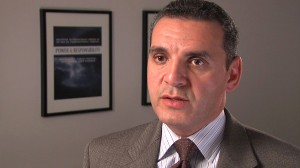The following events will take place as part of Women’s History Month:
- Monday, March 16: Film and Discussion: “Finding Kind”- 7 p.m. in, Lee Hall, Room 411
In this award-winning film, filmmakers document a cross-country journey of discovery and education, exploring the myths and realities of mean girls. Interviewing women and girls about their lives and experiences, “Finding Kind” is a quest to find a common ground of kindness and mutual respect. This session will feature the documentary followed by a moderated discussion of interrelationships and the effects of bullying or dysfunctional behavioral and communication patterns among girls and women. Sponsored by Alpha Mu Sigma.
- Tuesday, March 17: Dismantling Racism in the Feminist Movement – 4 p.m. in Lee Hall, Room 411
Join Feminists United on Campus and Virginia Organizing for a workshop on how to identify racism in the feminist movement. Listen to peoples’ experiences of racism within the movement, and identify ways to combat racism. Co-sponsored by Feminists United and Virginia Organizing.
- Wednesday, March 18: Women’s History Month Keynote Speaker: Dr. Anita Taylor- 7 p.m. in Lee Hall, Room 411
Dr. Anita Taylor is an expert on such topics as gender and language and communication, women as communicators and public speaking. She has coached debate and taught at the university level for more than four decades, working since 1979 at George Mason University, where she is professor emerita of communication and a member of the women and gender studies faculty.
- Monday, March 23: JFMC Human Rights Film Series Presents: “Daisy Bates: First Lady of Little Rock”- 6 p.m. in Lee Hall, Room 412
Sharon La Cruise’s “Daisy Bates: First Lady of Little Rock” details the life of the incredibly influential but largely forgotten civil rights activist, Daisy Bates.






